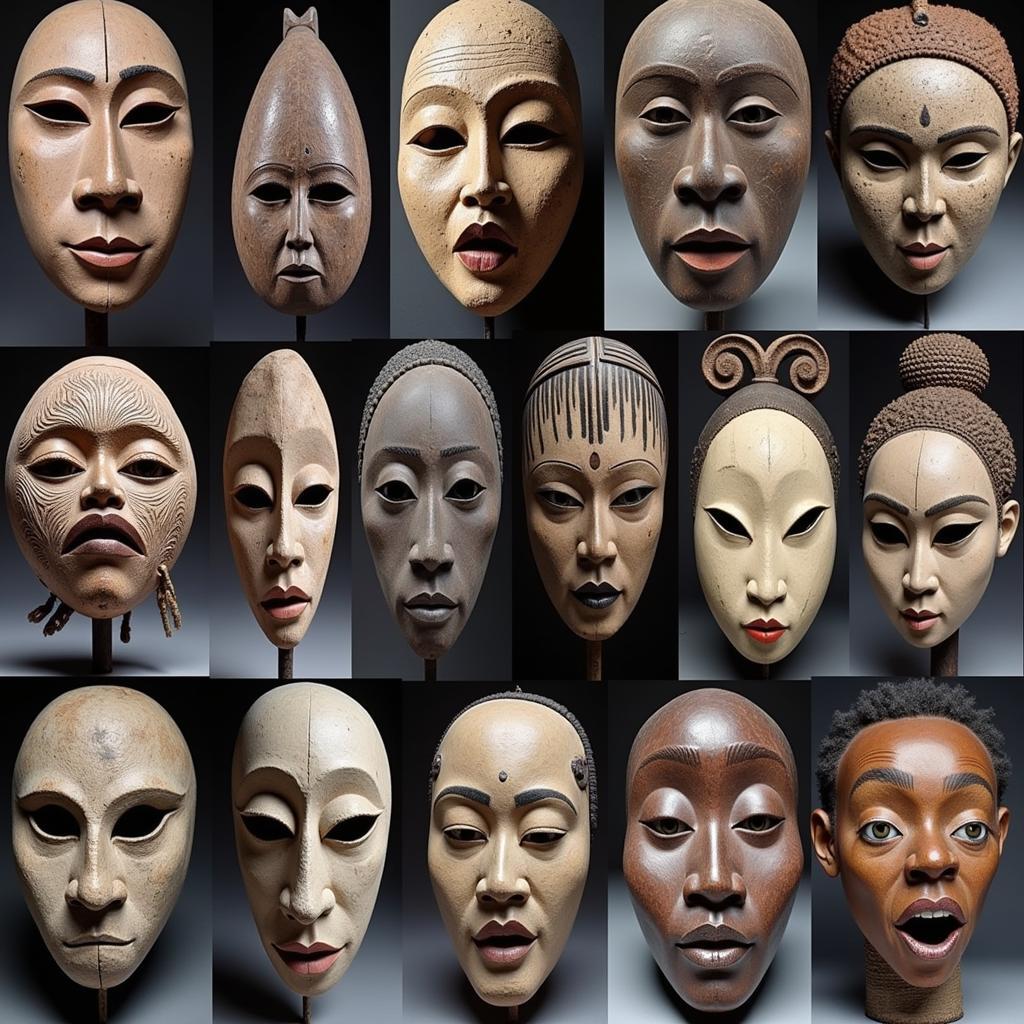African Fashion Influences: A Journey Through Styles and Inspirations
African fashion is a vibrant and diverse tapestry woven with threads of history, culture, and creativity. From the intricate beadwork of the Maasai to the bold prints of the Yoruba, the continent’s rich heritage shines through in its clothing, accessories, and textiles. This article will explore the diverse influences that have shaped African fashion, delving into its historical roots, cultural significance, and global impact.
The Roots of African Fashion: Tradition and Innovation
African fashion is deeply rooted in tradition, with each tribe and ethnic group having its own unique style and symbolism. These traditions are passed down through generations, preserving cultural identity and telling stories through clothing. From the vibrant colors and geometric patterns of the Kente cloth in Ghana to the intricate beadwork and intricate embroidery of the Zulu in South Africa, each garment is a reflection of its creator’s heritage and craftsmanship.
The Influence of Colonialism: A Shift in Style
Colonialism had a profound impact on African fashion, introducing new fabrics, patterns, and styles. European clothing, particularly the adoption of Western attire during the colonial era, introduced changes in dress code, leading to a fusion of traditional and Western influences. This resulted in a unique blend of styles that reflected both the past and the present.
Modern African Fashion: A Global Phenomenon
Contemporary African fashion has emerged as a powerful force on the global stage, showcasing the creativity and innovation of African designers. From runway shows to international fashion weeks, African fashion is gaining recognition for its bold prints, vibrant colors, and unique silhouettes. This resurgence of interest in African fashion is not only a celebration of cultural heritage but also a testament to the continent’s growing influence in the global fashion industry.
What are some of the defining features of modern African fashion?
Bold and Vibrant Colors: African fashion is known for its use of bold, vibrant colors that reflect the continent’s energy and vibrancy. From rich hues of indigo and ochre to vibrant shades of magenta and emerald, colors play a significant role in expressing cultural identity and personal style.
Intricate Patterns and Textiles: African textiles and patterns are intricately woven with rich symbolism and cultural significance. The “Ankara” print, originating from Nigeria, is a popular example, featuring bold, geometric patterns inspired by traditional African motifs.
Unique Silhouettes and Designs: Modern African fashion is characterized by its unique silhouettes and designs, often drawing inspiration from traditional garments and tailoring techniques. From flowing kaftans and flowing gowns to tailored jackets and modern pantsuits, African designers are reinterpreting traditional silhouettes in contemporary ways.
Global Recognition: African Fashion Takes Center Stage
The global fashion industry is increasingly recognizing the talent and innovation of African designers. Many have gained international acclaim, showcasing their collections on prestigious runways and receiving accolades for their unique designs. African fashion is no longer just a niche market; it has become a major player in the global fashion scene, attracting the attention of international buyers, stylists, and fashion enthusiasts.
What are some of the key influences that have shaped modern African fashion?
- Global trends: African designers are drawing inspiration from global trends, incorporating elements of Western fashion into their designs while retaining their distinct African identity.
- Social Media: Social media has played a crucial role in showcasing African fashion to the world. Platforms like Instagram and Pinterest have enabled designers to reach a global audience, connecting them with buyers and fashion enthusiasts worldwide.
- Cultural pride: There is a growing sense of cultural pride among young Africans who are eager to embrace their heritage and showcase it through fashion.
The Future of African Fashion: A Bright and Promising Path
The future of African fashion is bright and promising. The continent’s growing economy, coupled with the rising interest in African culture and creativity, is propelling the fashion industry forward. African designers are increasingly embracing sustainable practices and ethical sourcing, reflecting the growing awareness of environmental and social issues.
“African fashion is about storytelling; it’s about expressing our heritage and our identity through our clothing. It’s a powerful medium for connecting with our past, present, and future.” – Aisha Diawara, a renowned fashion designer from Senegal.
“The beauty of African fashion is its diversity. There are so many different styles and influences, from traditional to modern, that it’s impossible to define it in one way. It’s a constantly evolving and dynamic industry that is truly exciting to be a part of.” – Akintola Adebayo, a fashion journalist based in Lagos, Nigeria.
Conclusion: A Journey Through Styles and Inspirations
African fashion is a captivating journey through styles, inspirations, and cultural expressions. From its traditional roots to its modern interpretations, it is a testament to the continent’s creativity and resilience. As the global fashion industry continues to embrace African fashion, its influence will undoubtedly continue to grow, inspiring future generations and shaping the global fashion landscape for years to come.
